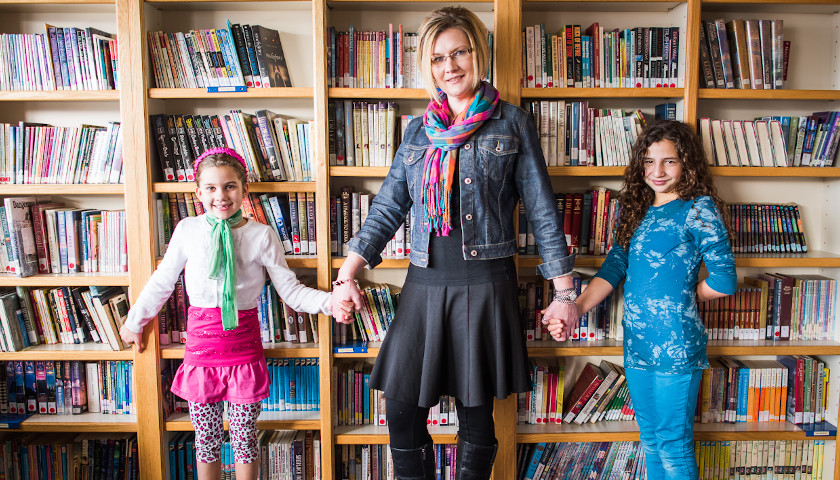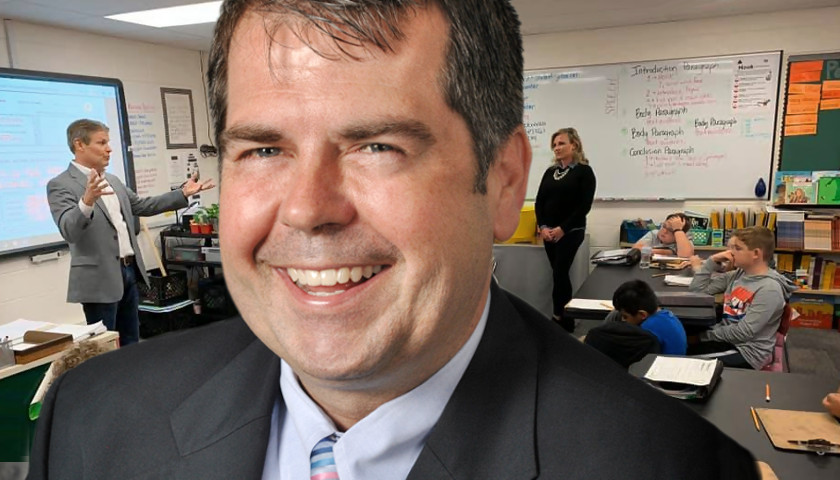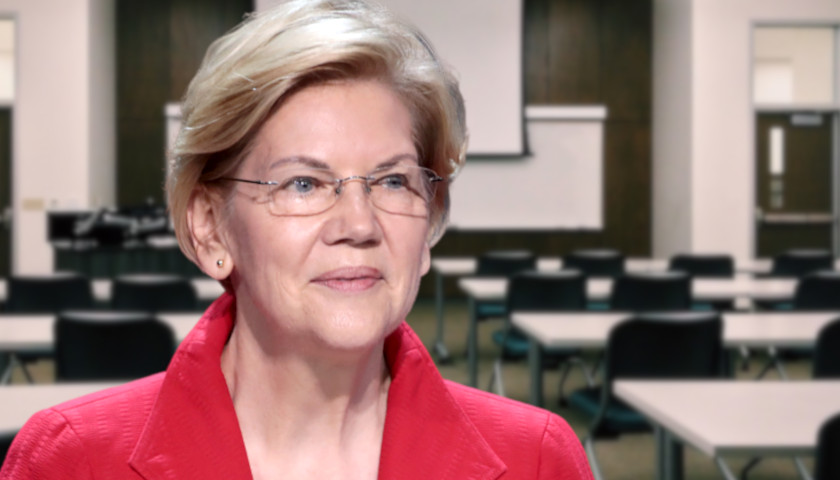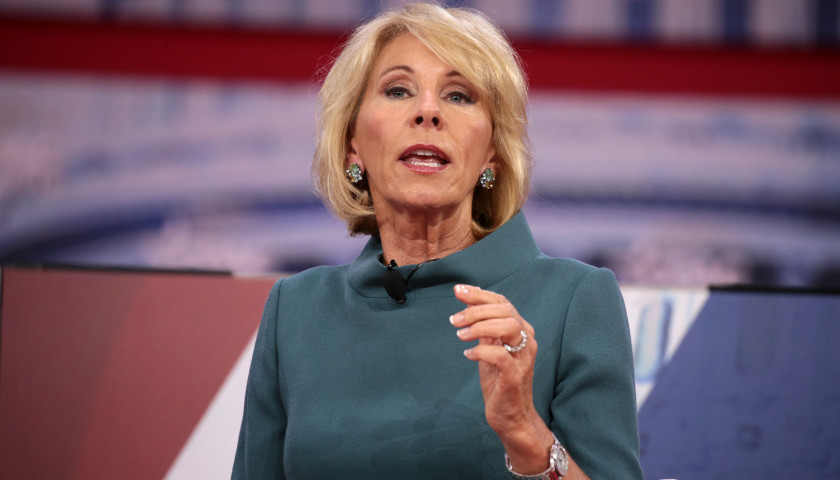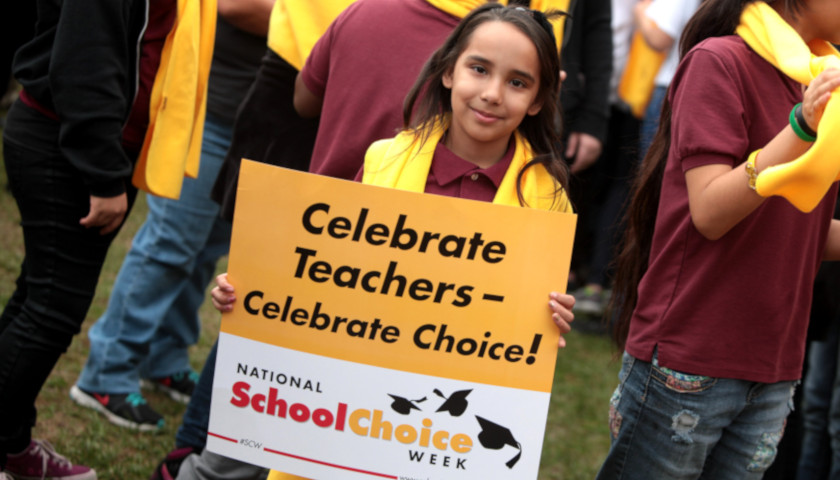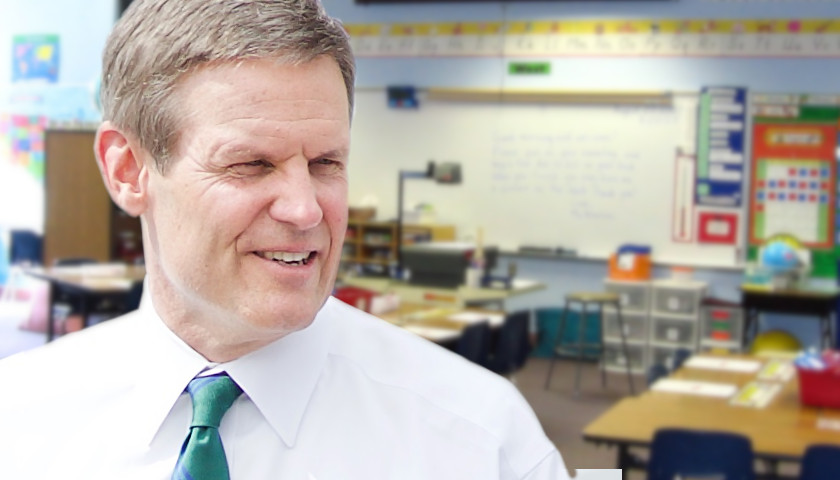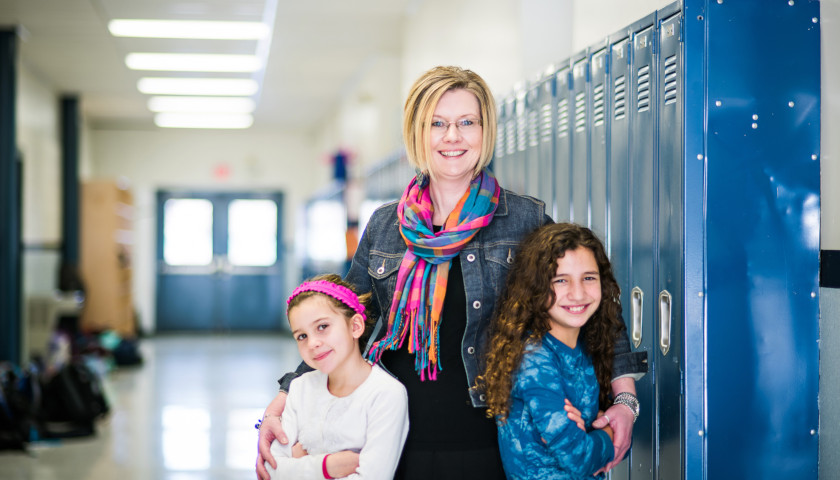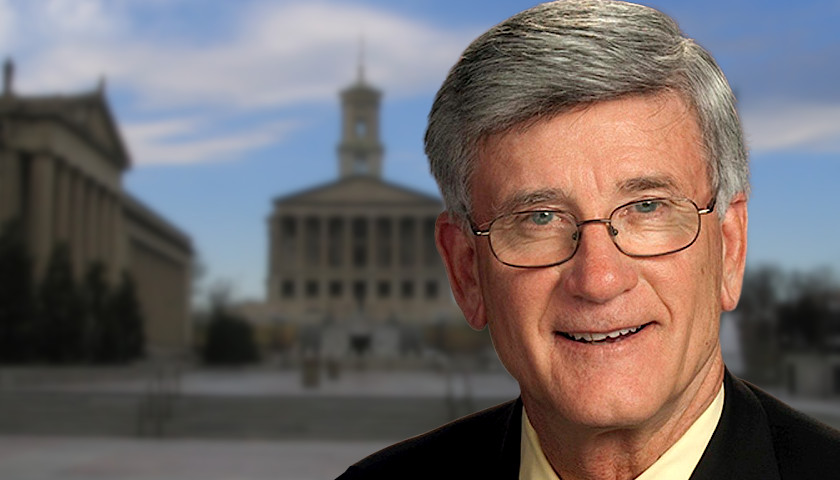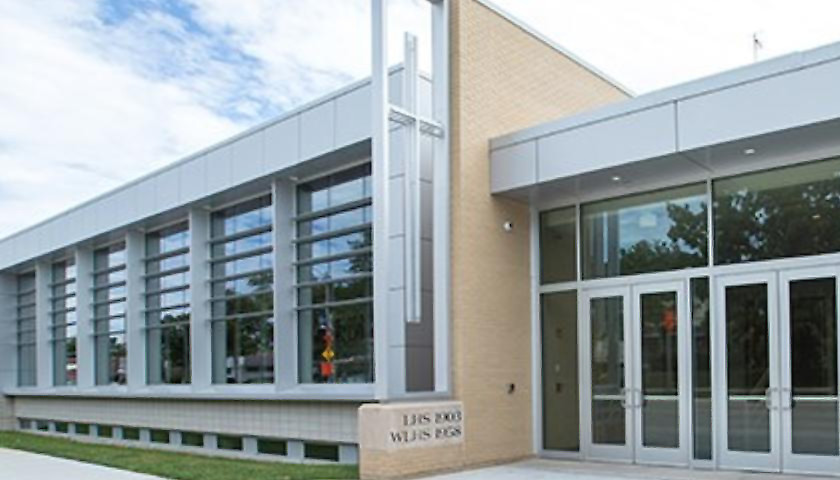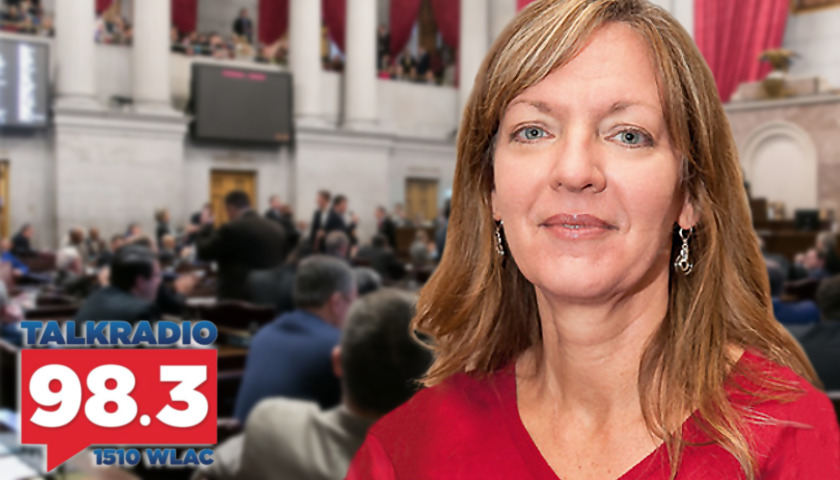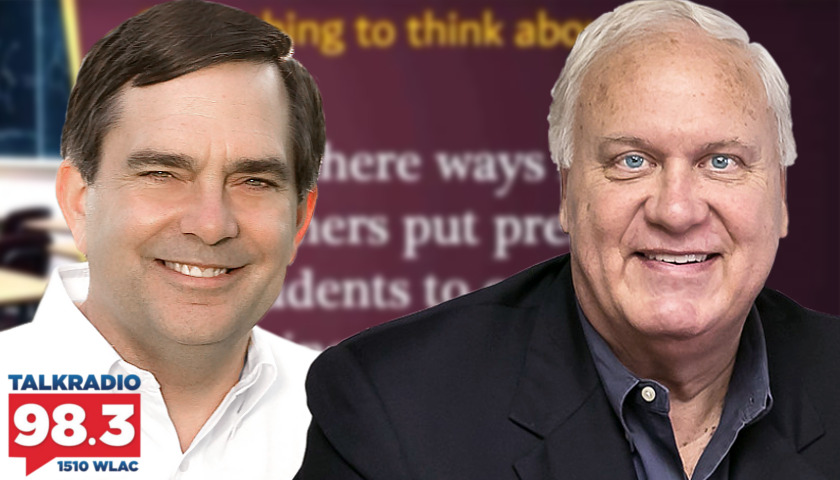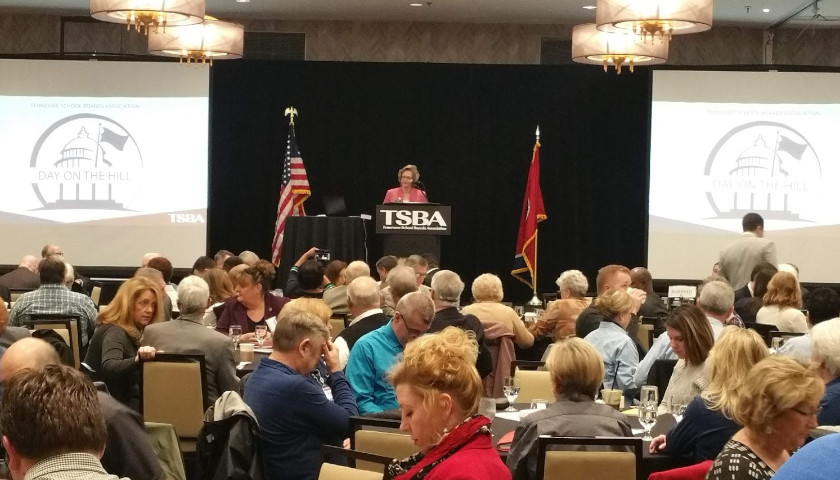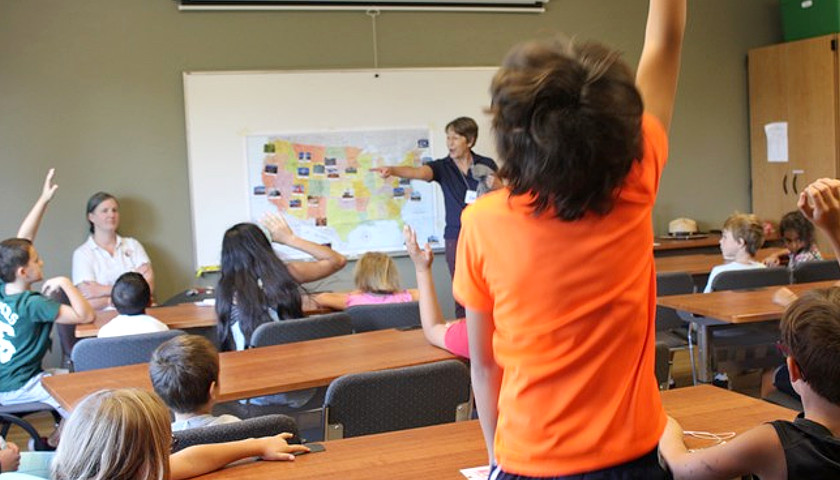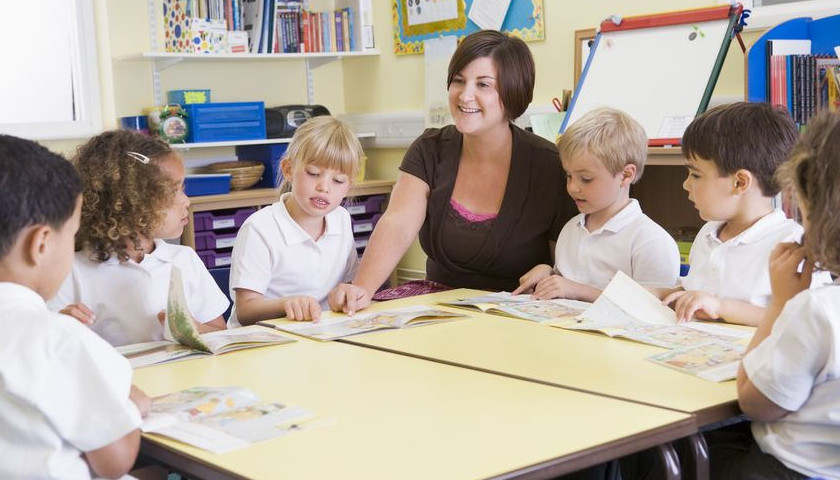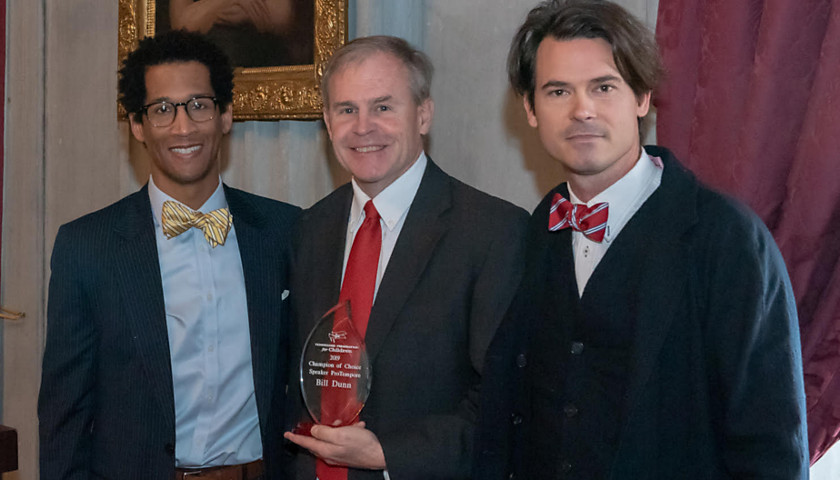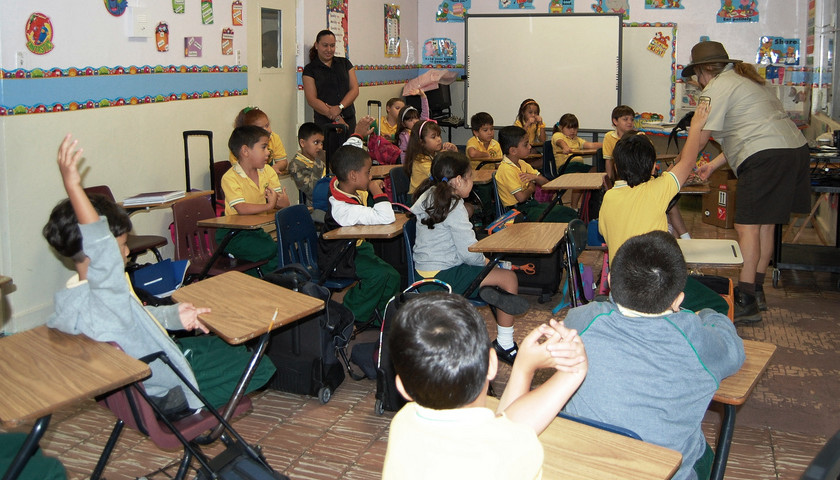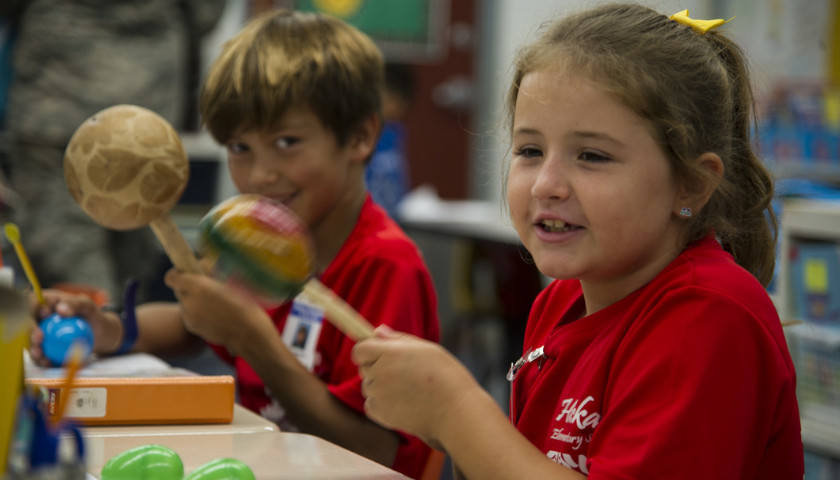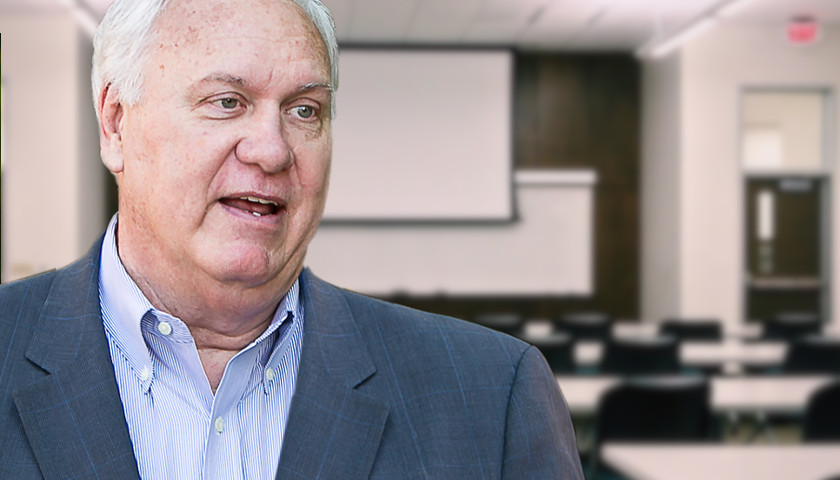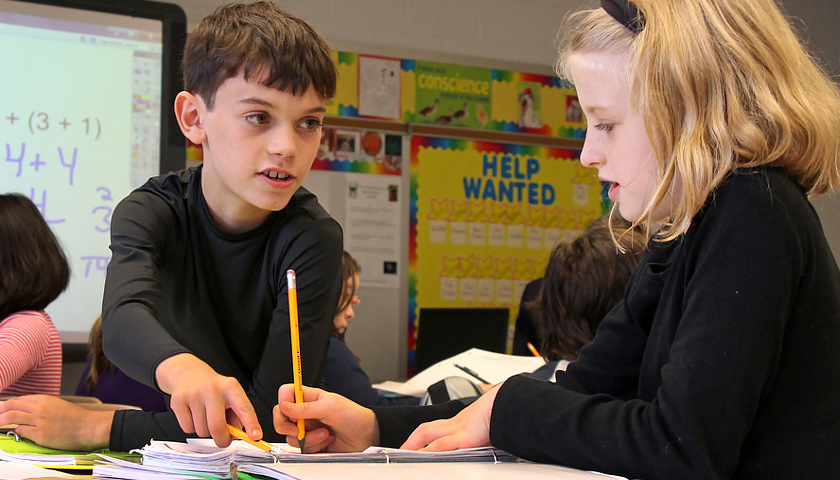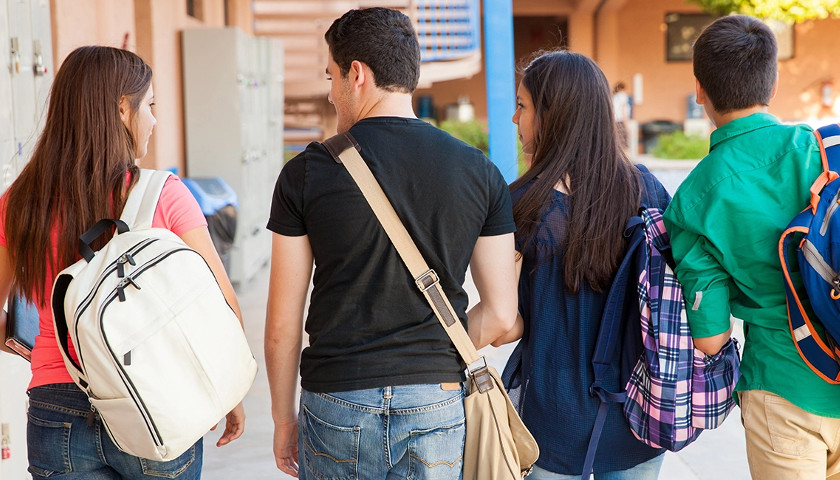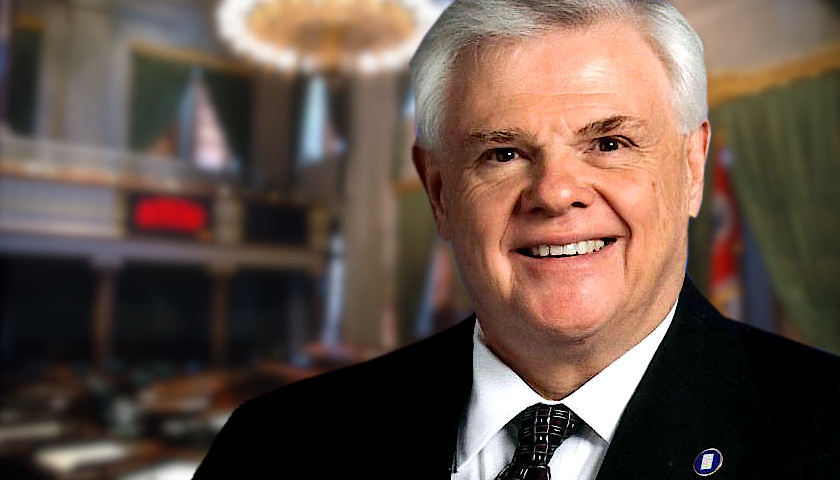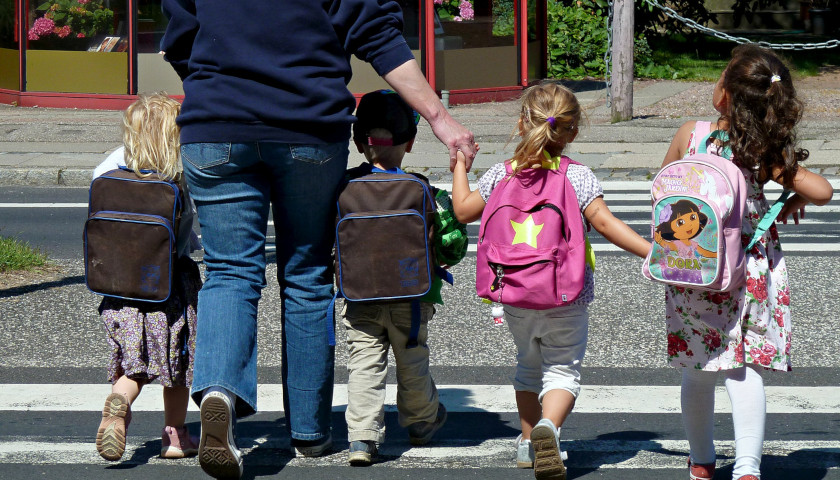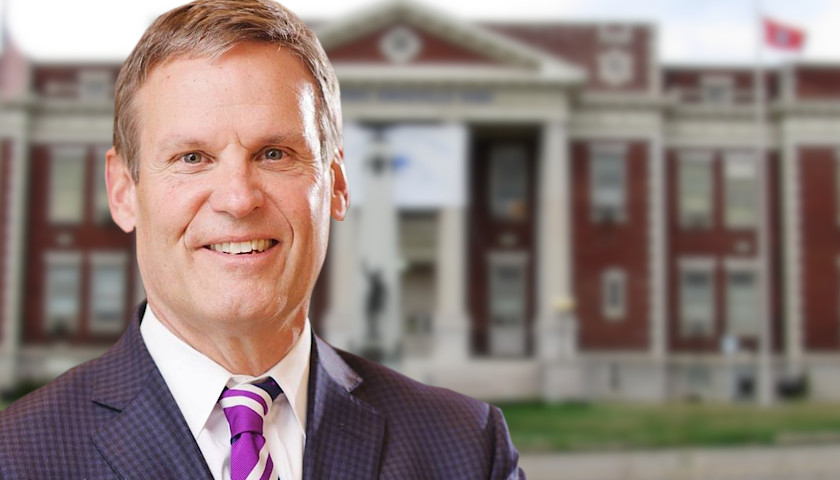The U.S Supreme Court is heard a case on Wednesday that could open doors to public money paying for religious private schools in Montana.
Read the full storyTag: School Choice
State Rep. Bo Mitchell Gears Up to Gut Last Year’s School Choice Bill
State Rep. Bo Mitchell, D-Nashville, is gearing up to defend proposed legislation he filed last year that, if enacted into law, would take away the Education Savings Account bill that passed last year.
Read the full storyElizabeth Warren Pledges to Crack Down on School Choice, Despite Sending Her Own Son to Elite Private School
Democratic Massachusetts Sen. Elizabeth Warren is pledging to crack down on school choice if elected, despite the fact that she sent her own son to an elite private school, publicly available records show.
Read the full storyPoll: Majority of Nation’s Democrats Favor Educational Choices
by Bruce Walker School choice is overwhelmingly supported by likely Democratic primary voters nationwide, according to a recent poll conducted on behalf of Democrats for Education Reform (DFER). Education analysts interpret the poll results as a rebuke of current Democratic Party strategies nationwide in general and, specifically, Michigan Gov. Gretchen Whitmer vetoing more than $36 million of increased charter school funding in the state. Daniel Quisenberry, president of the Michigan Association of Public School Alternatives (MAPSA), for example, told The Center Square that the poll indicates voters, parents and residents support charter schools because they offer alternatives to one-size-fits all public schools. “What we’ve seen in polls over the years is a growing strength of support for charter schools among minority Democrats,” Quisenberry said. Based on a sample of 1,721 likely voters in the 2020 election and an oversample of 1,227 likely Democratic voters, the Benenson Strategy Group conducted poll concluded that 81 percent of Democratic primary voters nationwide support expanding public school options. When broken down by race, 89 percent of African-American Democratic primary voters supported public school options, including charter schools. Additionally, the poll found 80 percent of voters, including 78 percent of Democratic primary voters and…
Read the full storyDeVos: No Surprise That ‘Families Want More Control’ Over Children’s Education
U.S. Secretary of Education Betsy DeVos said that it is no surprise “families want more control” over their children’s education.
Read the full storyPoll: Parents Overwhelmingly Support School Choice
More than three in four Americans think that parents should be able to decide which public school their child attends, according to a new poll.
Read the full storyGov. Lee Pushes Education Department to Launch School Vouchers a Year Early, in 2020-2021 Academic Year
Tennessee Gov. Bill Lee is pushing to launch his school voucher program a year early, in the 2020-2021 school year, education blog Chalkbeat said. The General Assembly had set a deadline of the 2021-2022 school year, the blog said. Lee told the Tennessee Department of Education to work with the Tennessee Board of Education to make the early launch happen for the Education Savings Account (ESA), or vouchers. Chalkbeat also said the early launch would move up the pace of expected lawsuits by organizations like the Tennessee Immigrant & Refugee Rights Coalition, which is preparing to challenge the law’s constitutionality. The law excludes students whose families enter the country illegally. Other critics say they worry about the potential for fraud. At least five school systems that have formally opposed vouchers have not done a good job of preparing their students for college, The Tennessee Star reported in May. The five school systems in Tennessee that have come out to formally oppose school vouchers haven’t exactly done that great of a job preparing students for college. This, according to statewide statistics members of the Tennessee Higher Education Commission reported last week. As The Tennessee Star reported, representatives from some of…
Read the full storySCOTUS to Hear Montana Case on School Choice, Religious Liberty
by Derek Draplin The U.S. Supreme Court will hear a wide-reaching Montana case dealing with school choice and the First Amendment. The Supreme Court announced Friday that it will take up the case Espinoza v. Montana Department of Revenue, which is being litigated by the Institute for Justice, a libertarian public interest law firm. The case stems from a scholarship program passed in 2015 by the Montana legislature that would give tax credits to those who donated to private scholarship organizations, which would then give scholarships to students in need who wanted to attend private schools. The program allowed for scholarships to be used at private religious schools. The Montana Department of Revenue, however, determined that the program violated the state constitution’s “Blaine Amendment” because it allowed for scholarships to be used at religious schools. The Montana Supreme Court backed the Department of Revenue’s argument and later invalidated the scholarship program, leading to the lawsuit. The Institute for Justice is representing several parents including Kendra Espinoza, a single mother who enrolled her kids in a private Christian school after public school wasn’t a good fit. Lower courts have been split on similar questions over school choice in the past,…
Read the full storyLetter to the Editor: An Open Letter to Senator Gardenhire
Dear Senator Gardenhire, My name is Alexander Ioannidis and I am a rising senior studying Economics at the University of Tennessee-Chattanooga. I am a lifelong resident of Chattanooga and currently reside in East Brainerd. I have been following the debate over the proposed school-choice legislation very closely, and my emotions have been continuously fluctuating. There are times when it looks like this bill is bound to pass, and there are times when it looks certain to fail. I know that people from both sides of the aisle are trying to lobby for your vote, I know that you had several concerns about the bill, and I would be a fool to think that you were not conflicted about it. With this being said, I cannot tell you how grateful I was when I saw that you voted along with your fellow Hamilton County colleague Senator Watson to send it out of the finance committee and advance it to the Senate floor. I was even more grateful today when I saw that after the urging of President Trump, the Senate coalesced around it and passed the bill. While I could not be more thrilled that it passed, I hope and…
Read the full storyPresident Trump Shows Support for Tennessee Education Savings Accounts
Tennessee’s efforts to provide school choice have captured President Donald Trump’s attention. The president on Wednesday tweeted, “The Great State of Tennessee is so close to passing School Choice. All of our Nation’s children, regardless of background, deserve a shot at achieving the American Dream! Time to get this done, so important!” The Great State of Tennessee is so close to passing School Choice. All of our Nation’s children, regardless of background, deserve a shot at achieving the American Dream! Time to get this done, so important! — Donald J. Trump (@realDonaldTrump) April 24, 2019 The Tennessee Star reported on Tuesday’s dramatic vote by the State House to approve Gov. Bill Lee’s Education Savings Account (ESA) bill. Rep. Jason Zachary (R-Knoxville) changed his vote from No to Aye to break the tie after Knox County Schools were exempted from the ESA program. Zachary tweeted, “Update on my ESA vote…. Knox County is out, held fiscally harmless and our teachers get their raises!” Update on my ESA vote….Knox County is out, held fiscally harmless and our teachers get their raises! pic.twitter.com/K583kzdE5u — Rep. Jason Zachary (@JasonZacharyTN) April 23, 2019 The ESA bill is expected to get a Senate floor vote…
Read the full storyIn Wisconsin, School Choice Has Unexpected Benefits
by Joshua Nelson Elisha Doerr would not have had an opportunity to attend Wisconsin Lutheran High School, a Milwaukee-based private boarding school, if it weren’t for a school choice program. The school’s excellent curricula and the religious community were valuable to Doerr, 18, who now attends Harvard University and is deciding between majoring in government or computer science. Raised in rural Waupun, Wisconsin, with six younger siblings, Doerr’s choice for a superior education in his hometown appeared limited. His parents, who had homeschooled Elisha, looked at Wisconsin Lutheran High School for its religious affiliation, but they needed financial assistance to send their son there. Elisha Doerr would not have had an opportunity to attend Wisconsin Lutheran High School, a Milwaukee-based private boarding school, if it weren’t for a school choice program. The school’s excellent curricula and the religious community were valuable to Doerr, 18, who now attends Harvard University and is deciding between majoring in government or computer science. Raised in rural Waupun, Wisconsin, with six younger siblings, Doerr’s choice for a superior education in his hometown appeared limited. His parents, who had homeschooled Elisha, looked at Wisconsin Lutheran High School for its religious affiliation, but they needed financial…
Read the full storyCommentary: Why Can’t We Ask the Hard Questions About Education?
By Andrew I. Fillat and Henry I. Miller Retired teacher Mary Hudson recently wrote a damning exposé based on her experiences in the New York City public school system. Hudson taught in three different public high schools and her observations from those years lead her to implicate the students and a “go along to get along” attitude among administrators for persistently poor educational performance. Put simply, administrators are unwilling to set high educational and behavioral standards for fear of having to confront underperforming and disruptive students. They have few implements their toolbox to permit such confrontation. As a result, students feel diminished and take advantage of lax standards to dismiss the educational aspect of school. Peer pressure and even physical intimidation deter the few students who are interested in learning and effectively this turns schooltime into social time. Administrators respond by treating classes like day care, often to the chagrin of teachers. This is “the soft bigotry of low expectations” epitomized. The net result is a student body hostile to direction, discipline, and learning. This problem is exacerbated by the “social justice” and politically correct mindset that makes discipline, both behavioral and educational, subject to racial quotas. (Woe to…
Read the full storyThe Tennessee Star Report: Senior Reporter Laura Baigert on Why The Education Savings Account Bill Cleared a Big Hurdle in Committee This Week
On Thursday’s Tennessee Star Report with Steve Gill and Michael Patrick Leahy – broadcast on Nashville’s Talk Radio 98.3 and 1510 WLAC weekdays from 5:00 am to 8:00 am – guest host and Nashville Tea Party Activist Ben Cunningham spoke with The Tennessee Star’s own senior reporter Laura Baigert, co-guest host for the day, about the key 14 to 9 favorable vote in the Education Committee this week that moved the Education Savings Account legislation closer to a vote on the floor of the House. Kevin Baigert, Laura’s husband and a long-time conservative activist in the state, was also a special in-studio guest during the broadcast who provided key insights into the vote as well. Cunningham: Had a really interesting episode yesterday at the General Assembly the, one of the Governor Bill Lee’s main legislative initiatives is what’s called an ESA , educational savings account and a real important vote occurred yesterday in the education committee. Laura, you were there. Give us just the two paragraph version of what happened. I saw it was fourteen to nine vote. That’s really is more than I thought the bigger majority. Is that about what you expected in terms of the committee vote. Baigert:…
Read the full storyThe Tennessee Star Report: Gill and Leahy Discuss WCS Video Series and the Forced Education of Global Citizenship
On Monday’s Tennessee Star Report with Steve Gill and Michael Patrick Leahy – broadcast on Nashville’s Talk Radio 98.3 and 1510 WLAC weekdays from 5:00 am to 8:00 am – Gill and Leahy talked in depth about the Williamson County school districts “Cultural Competency” video training series that have been forced upon teachers and hence their students. Towards the end of the segment, the men asked the question of why nobody is speaking up about this. They begged the question of where are the parents, the administrators, the Governor who in his State of the State address promised that Tennessee schools would be teaching American Exceptionalism. The duo expressed concern for the lack of basic skills being taught and lack of Americanism and push of Globalism centered agenda. (Audio plays) Gill: How about the test of any school system being the ability to teach children to read, write, do arithmetic, to learn the basic skills so that they can for a lifetime pursue learning because they’re going to have those fundamental skills of reading, writing, and arithmetic. Leahy: Oh Steve. (Chuckles) Gill: How about if that is the fundamental schools and tests instead of this double speak educrat speak that…
Read the full storyTaxpayer-Funded Tennessee School Board Association Lobbies State Legislature for More Money and Greater Control
NASHVILLE, Tennessee – The Tennessee School Board Association, funded through membership dues paid with tax dollars allocated for school systems, lobbies the Tennessee General Assembly on various issues many of which work against taxpayers’ interests. This week, the Tennessee School Board Association (TSBA) held their annual Day on the Hill with approximately 250 attendees primarily made up of school board members from the organization’s 141 member boards around the state, although superintendents are also permitted to attend. The registration fee was $100 per person, and a block of rooms were made available at the DoubleTree Nashville Downtown at a rate of $219 per night, plus tax. The event, which started Monday evening with a program on this year’s proposed legislation and a reception, continued with Tuesday’s “Call to Action: Conquering the Hill,” during which attending school board members and superintendents broke out to meet with their legislators and attend legislative committee meetings. The packet provided to attending school board members, in addition to general logistical information like an agenda, area map and a list of legislators, included more than 20 pages of materials detailing bills that TSBA supports or opposes, TSBA’s 2019 legislative agenda and an issue brief on each…
Read the full storyFebruary 13th: Concerned Parents and Grassroots Organization Call for School Choice in Response To Failing Public Schools in Ohio
On February 13th, the Citizens for Community Values will join with a group of concerned parents to hold a press conference, imploring the Ohio legislature to expand access to EDChoice Scholarships. Since 2005, EdChoice scholarships have existed been a statewide initiative that gives students the opportunity to receive scholarships to attend private schools, should their local public school perform poorly. The Ohio Department of Education rates each school and district on six components then assigns an overall grade. Overall, Toledo public high schools currently have an “F.” In four of six categories; Achievement, Gap Closing, Graduation Rate, and Prepared for Success, Toledo also has an F. In the remaining 2; Improving At-Risk K-3 Readers and Progress, the district received a “D.” Many local parents have reservations in sending their children to these schools. The concerned parents organizing the press conference all have children who attend private schools local to Toledo, many of which will be entering high school soon. Due to a provision within the law, these private school students, who are not currently receiving scholarships, are ineligible to receive these funds for high school. Therefore, they would have no choice to attend the local public schools or try to pay out-of-pocket, which is an unrealistic expense…
Read the full storyCommentary: School Choice Also Gives Teachers Like Me More Choice
by Daniel Buck During a moment of small group discussion in a professional development session, a teacher near me gave his opinion: Look, I’ve learned a few things in my time here, and that’s to only do these sorts of things on the days the administration comes in to watch. In most school buildings, there smolders an animosity of which most people aren’t aware between teachers and administrators. It shows up in staff meetings. It’s heard in teachers’ lounge gossip. “If only they trusted us and gave us the freedom to do our jobs as we saw fit,” goes the refrain of frustrated teachers. This tension, while a problem in itself, is indicative of a larger issue. There is a handful of different ways to teach that are based on different educational theories; public schools, not committed to any particular theory, mandate a poor mixture of them all onto their teachers. Private schools, a different option where the curriculum may be more aligned to individual beliefs, contain only 10 percent of school enrollment, leaving most teachers to teach a hodgepodge curriculum with which they don’t agree. It’s a matter, then, of hampered choice. The Problem A quick overview of…
Read the full storyDuring National School Choice Week, Speaker Pro Tem Bill Dunn Receives Award for School Choice Efforts
In celebration of National School Choice Week, Tennessee Federation for Children sponsored a Champions of Choice event at the state capitol to present Representative Bill Dunn with the 2019 Champion award. Standing beside Tennessee Speaker of the House Glen Casada (R-Franklin), Shaka Mitchell, Tennessee’s State Director of American Federation for Children, said that as National School Choice Week is being celebrated this week, they wanted to come together to recognize one of the state’s leaders in education and strong advocate for students, Speaker Pro Tem Bill Dunn (R-Knoxville). American Federation for Children (AFC) is a Washington, D.C. headquartered non-profit organization that seeks to “empower families, especially lower-income families with the freedom to choose the best K-12 education for their children.” The event was held in the Legislative Library located at the state capitol with as many as 100 in attendance including legislators and members of Governor Bill Lee’s staff. AFC’s partner organizations in the effort including Beacon Center of Tennessee, Americans for Prosperity-Tennessee and Tennessee CAN (The Tennessee Campaign for Achievement Now) were also there. AFC’s Mitchell started off by speaking about the quality of education in Tennessee, “The reality is we still have a long way to go,” after…
Read the full storyCommentary: School Choice Is Breaking Down Barriers in Puerto Rico
by Jude Schwalbach The new year is bringing exciting developments to Puerto Rico’s education reforms. Not only will the U.S. territory open new charter schools, it will also launch a new pilot private school voucher program in the fall. The need for education reform is most clearly illustrated by Puerto Rico’s National Assessment of Educational Progress results, where students scored multiple grade levels below students in underperforming school districts, such as the District of Columbia and Detroit. Incredibly, zero percent of Puerto Rican fourth- and eighth-graders scored at the “proficient level” in mathematics. However, the island took action last year when it opened its first charter school, Proyecto Vimenti, which modeled its curriculum after Puerto Rico’s most prestigious private school. In a community where more than 40 percent of the population lives below the federal poverty line, the school’s mission to free children from generational cycles of poverty and improve student health resonated deeply with local families. Proyecto Vimenti’s emphasis on health screenings identified student struggles that might have been overlooked in traditional public schools. For instance, the school’s initial health screening quickly showed why some children struggled in the classroom: More than half of them suffered from visual…
Read the full storyPoll Shows School Choice Has 67 Percent Support Among Likely 2020 General Election Voters
Latinos and Millennials are among the demographics who most strongly support school choice, the fifth annual National School Choice Poll says. The American Federation for Children, which advocates for educational choice, and Beck Research, a Democratic polling firm, announced the poll results Thursday. More information on the poll is available here in an article by Tommy Schultz, the federation’s national communications director. Support among Latinos was 73 percent, while for Millennials it was 75 percent, the federation said. Full polling information is available here. School choice is favored by a 67 percent to 27 percent margin, Beck Research said. The poll was taken from among 1,200 likely 2020 General Election voters. John Schilling, president of the American Federation for Children, said in a statement, “Despite relentless attacks from opponents of educational freedom throughout the past year, school choice support has grown over the past year. Most parents want a different option for their child and are willing to make sacrifices to go to a better school if they had the option.” According to the federation, one poll highlight was: When asked, “Generally speaking, would you say you favor or oppose the concept of school choice?” and given the following definition,…
Read the full storySteve Gill Commentary: Why are Public School Teachers Avoiding Public Schools for Their Own Children?
Would you eat at a restaurant that the cooks and wait staff avoided themselves? Wouldn’t that tell you everything you needed to know about the quality of the food they were serving? Likewise, as public school teachers send their own children to private schools at about TWICE the rate of the general public, and at an even HIGHER rate in our urban centers, doesn’t that tell us more about the quality of our schools than a huge stack of glossy, bureaucrat-generated reports about test scores? A survey conducted by EducationNext in 2015 found that 20% of public school teachers had sent their own children to private schools at some point compared to 13% of non-teachers. Those figures don’t include public school teachers who live in another county or district to avoid the schools where they teach. In 2004, an even more comprehensive national study by the Fordham Institute revealed even more disturbing figures. According to that survey, more than 1 in 5 public school teachers sent their children to private schools, which is consistent with the EducationNext study. Nationally, 11% of non-teachers made that same choice. But the Fordham Institute dug more deeply into the choices being made by parents…
Read the full storyMinnesota Receives ‘C’ Grade From Center for Education Reform, Cautions Against Walz’s ‘Authoritarian’ Approach
Minnesota received an overall C grade in parent empowerment on the Center for Education Reform’s annual Parent Power Index, which factors school choice, charter schools, personalized learning, teacher quality, and transparency into its grading system. With two school-choice programs, Minnesota received an F grading in the area of school choice, but still managed to score above the national average. Only one state, Florida, received an A for its school choice programs. Minnesota currently offers a K-12 Education Credit, which is an individual tax credit program that “offers families refundable tax credits for non-tuition educational expenses like tutoring, educational after-school programs and books.” The state also offers an Education Deduction program that allows “parents to deduct educational expenses, including tuition, tutoring, books, and more.” Overall, Minnesota ranked fourth on the Parent Power Index, which states that “only a lack of private school choice prevents this star from rising as high as it could.” “Like its North Star name suggests, Minnesota is truly a stellar state for education innovation. It was the first state to pass a charter school law, and it is now at the forefront of digital and personalized learning. Minnesota also offers many choices for high school students to…
Read the full storyOhio School Voucher Program Doubles as More Public Schools Fail to Make The Grade
After a staggering number of Ohio public schools failed to make the grade, the state’s voucher and charter school system is poised for tremendous expansion. In Ohio, if the public school test scores of a student’s home district fall below a certain level, calculated by the Ohio Department of Education, a number of the students are automatically granted vouchers to attend private school and charter schools are permitted to establish themselves. This is intended to both give children from every country access to quality schools and alleviate the student burden on the lagging school. The public schools performed so poorly that charter schools will have 600 times more areas to expand into, and student access to vouchers will more than double. Teacher unions and many in the progressive activist community have aggressively opposed both school voucher programs and charter schools. They argue that these programs siphon off funding from the already financially strained school system. In addition, a number of private schools in Ohio were founded as religious institutions. While none can legally force children to engage in religious activity against their will, progressives maintain that as they are still religiously-oriented, it is a violation of the ‘separation church and state.’ Ironically, it was an…
Read the full storyThe Tennessee Star Report EXCLUSIVE Interview With Incoming Tennessee House Speaker Glen Casada
On Wednesday’s Tennessee Star Report with Steve Gill and Michael Patrick Leahy – broadcast on Nashville’s Talk Radio 98.3 and 1510 WLAC weekdays from 5:00 am to 8:00 am – Gill and Leahy talked with State Rep. Glen Casada (R-Franklin), the incoming Speaker of the Tennessee House of Representatives about the challenges the Tennessee General Assembly will face in its new session, which began formerly later in the day. Gill and Leahy discussed a number of topics with Casads, including Shelby County’s defiance of state statutes regarding illegal immigration and sanctuary cities, the new incoming freshman legislators and the challenges they face, school choice, and criminal justice reform. At the end of the segment, Gill and Casada touched upon what Bill Lee’s lack of conservative cabinet picks mean for the Tennessee legislation. Gill: The incoming house speaker who will soon move to that position, current state representative and soon to be house speaker Glen Casada is on the line with us this morning. Casada: Good morning Steve, how are you? Gill: Now when do you actually take over as house speaker? Casada: I am sworn in at approximately noon, Tuesday, January the 8th. Gill: So you’ve got about one more…
Read the full storyState Sen. Ken Yager Pledges Opposition to School Vouchers
State Senator Ken Yager (R-TN-12) said he will not support school vouchers if they come up for a vote in the Tennessee Legislature in 2019, the Independent Herald of Oneida said. “I am opposed to vouchers,” Yager said. “I will not support any proposal that will cause a hemorrhage of needed funds to our schools.” “One of the arguments on behalf of vouchers is freedom of choice,” Yager said. “I happen to believe we already have that choice. It’s called parental choice. You can send your kids to charter school if you want to, or to a private school, or you can home-school them or send them to a public school. The choice is already there. Gov.-elect Bill Lee campaigned on school choice. Yager’s statement would appear to go against what Lee has said is a priority, but will Lee follow through on his campaign promise? On the Dec. 11 Tennessee Star Report with Steve Gill and Michael Patrick Leahy – broadcast on Nashville’s Talk Radio 98.3 and 1510 WLAC weekdays from 5 a.m. to 8 a.m. – the men analyzed Lee’s cabinet picks and the absence of any conservatives. They also discussed whether Lee would honor his “school choice” campaign pledge.…
Read the full storyJC Bowman Commentary: Open Enrollment is a Choice
As the focus on education choice is elevated by Governor-elect Bill Lee, maybe the easiest place to find initial consensus is with open enrollment. We must expand open enrollment policies in our public school districts.
Read the full storyTennessee Star Report: How Will Gov-Elect Lee Follow Up on School Choice Campaign Pledge?
In a specific discussion on Tuesday morning’s Tennessee Star Report with Steve Gill and Michael Patrick Leahy – broadcast on Nashville’s Talk Radio 98.3 and 1510 WLAC weekdays from 5:00 am to 8:00 am – the duo contemplated Bill Lee’s current cabinets picks and the absence of any conservatives. The conversation continued about whether or not Lee would hold true to his “school choice” (or more specifically “parent choice”) campaign pledge and why it needs to become a bill and why it hasn’t in the past. At the end of the segment, Leahy urged Lee to provide leadership on this matter. Gill: We’ve been talking a little bit about the Bill Lee transition process and who’s been put into place in his senior positions and cabinet positions who are being added as we speak. Who are “whispering in his ear” to direct his assembling of his senior leadership team and cabinet. And you’re welcome to join us, 615-737-9522. Bill Lee and his team have not been able to find any conservatives any consistent dependable conservatives to serve in the senior positions of his administration at this point. They’ve appointed roughly twelve cabinet level positions including commissioner of financing and administration, agriculture, commerce and insurance, tourism,…
Read the full story
